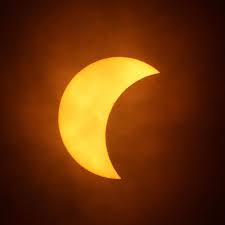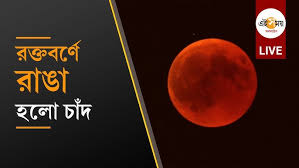
lunar eclipses Introduction
lunar eclipses of people afraid ? Throughout history, celestial events have fascinated and frightened humanity. Among these, the lunar eclipse has often been seen as mysterious and terrifying. When the Earth passes between the Sun and the Moon, casting its shadow on the Moon, the once bright lunar surface turns dark red—an awe-inspiring but unsettling sight.
Even today, in many cultures, people still ask: Why are people so afraid of lunar eclipses?
This article explores the myths, cultural traditions, scientific explanations, and psychological reasons behind lunar eclipse fears—while also highlighting the truth that modern science reveals lunar eclipses of people afraid ?
What Is a Lunar Eclipse?
A lunar eclipse occurs when the Earth blocks sunlight from directly reaching the Moon. There are three main types:
Total Lunar Eclipse – The Moon enters the Earth’s darkest shadow (umbra), often turning red, known as a “Blood Moon.”
people afraid of lunar eclipses Although completely natural, the sudden change in the Moon’s appearance historically fueled fear and superstition.
lunar eclipses of people afraid Historical Myths and Cultural Beliefs
1. Ancient Mesopotamia – A Bad Omen
In Babylonian culture, a lunar eclipse was believed to signal danger for the king. To protect him, a temporary substitute king would sometimes be appointed until the threat was believed to have passed.
2. Hindu Beliefs – Rahu and KetuMany people still avoid eating food, drinking water, or going outside during eclipses due to these ancient beliefs.
3. Chinese Legends – The Celestial Dragon
Ancient Chinese folklore described a giant dragon devouring the Moon.4. Indigenous Cultures – Warnings of Change
Some Native American tribes believed lunar eclipses represented an imbalance in nature, signaling big changes or transformations within the community lunar eclipses of people afraid ?
5. Medieval Europe – Fear of Witches and Evil
In medieval Europe, eclipses were often linked to witchcraft, curses, and the wrath of God. Farmers feared crop failures, while rulers feared war or political instability.
Scientific Explanation of Fear
Modern psychology offers insight into eclipse-related fear:
Evolutionary Psychology: Humans are naturally cautious of sudden environmental changes.
Cognitive Bias: If negative events occur near an eclipse, people may falsely connect the two.
Cultural Conditioning: People raised with superstitions often carry unconscious fears, even if they know the science people afraid of lunar eclipses.

lunar eclipses of people afraid Modern Superstitions About
Even with today’s scientific understanding, many superstitions remain alive:
Pregnant Women Should Stay Indoors – Some believe eclipses can harm unborn babies.
No Food or Water During Eclipse – Belief that food gets “poisoned” by lunar rays.Don’t Travel – Travel during an eclipse is thought to invite misfortune.
Spiritual Cleansing – Some cultures see eclipses as a time for prayer, fasting, and meditation lunar eclipses of people afraid ?
While these beliefs have no scientific basis, they highlight how deeply eclipses are tied to human imagination people afraid of lunar eclipses.
Famous Lunar Eclipses That Sparked Fear
Christopher Columbus (1504):
Columbus used knowledge of a lunar eclipse to frighten native Jamaicans, claiming he could make the Moon disappear if they didn’t provide food.
World War I and II:
Soldiers in both wars reported being spooked by Blood Moons, interpreting them as bad omens before battles.
Recent Social Media Trends:
In modern times, some conspiracy theorists connect eclipses with doomsday predictions, sparking unnecessary fear online lunar eclipses of people afraid ?

Positive Perspectives on Lunar Eclipses
Not all cultures viewed lunar eclipses negatively.
Maya Civilization: Saw eclipses as important astronomical events, using them to refine calendars.
Inca Tradition: Rituals honored the Moon goddess Mama Quilla, turning eclipses into sacred ceremonies.
Modern Spirituality: Some people now see lunar eclipses as a chance for reflection, renewal, and transformation.
lunar eclipses of people afraid Science Has Replaced Fear
Thanks to modern astronomy:
We can predict lunar eclipses centuries in advance.
We know they are harmless natural events.
Scientists use eclipses to study Earth’s atmosphere (since the red glow is caused by sunlight refracted through Earth’s atmosphere).
Today, instead of fear, most people watch lunar eclipses with excitement, cameras, and telescopeslunar eclipses of people afraid ?
How to Overcome Fear of Lunar Eclipses
Learn the Science: Understand why eclipses happen.
Watch with Others: Experience the event in groups to replace fear with wonder.
Break Superstitions: Challenge unfounded beliefs by comparing them with facts.Practice Mindfulness: View the eclipse as a unique chance for reflection, not fear.
Encourage Children: Teach kids that eclipses are safe, natural, and beautiful.
FAQs
Q1: Why do lunar eclipses scare people?
Because of sudden changes in the Moon’s appearance, red coloration, and centuries-old myths linking them to disaster.
Q2: Is it harmful to eat during a lunar eclipse?
No. Scientifically, food and water are unaffected by eclipses.
Q3: Are lunar eclipses bad omens?
No. Lunar eclipses are natural celestial events, not omens of disaster.
Conclusion
The fear of lunar eclipses comes from a mix of ancient myths, cultural beliefs, and human psychology. While science now explains them as harmless, the emotional and cultural weight of eclipses remains strong in many parts of the world.
Instead of fearing them, we should embrace lunar eclipses as awe-inspiring cosmic spectacles—reminders of our place in the vast universe.
